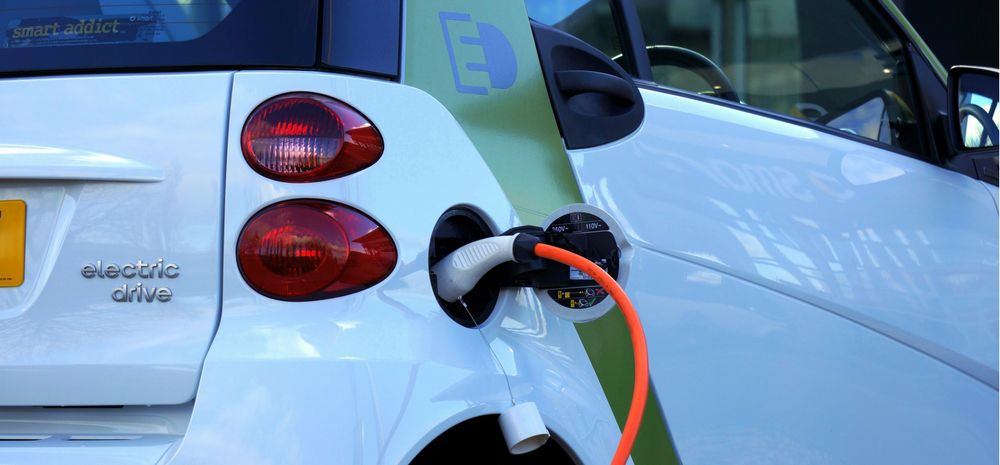The Big Setback To OLA’s Electric Car Plan; Why India Is Still Not Ready For Electric Vehicles!
India’s homegrown cab aggregator OLA has been planning on introducing electric cars for over a year now.

Electric cars in India is still a new concept with less than half a percent of electric vehicles. India’s homegrown cab aggregator OLA has been planning on introducing electric cars for over a year now. The company started with a pilot fleet of electric cars in Nagpur. The government has repeatedly been focusing on making electric cars mainstream and the Bangalore-based company launched a battery-powered vehicle fleet last year in Nagpur.
OLA has over half the total share of total cab rides booked in India, and the company was planning to foray into electric cars on a large scale after the government signalled that its ambitious electric vehicles (EVs) plan.
Contents
The Big Setback To OLA’s Electric Car Plan
The government plans to go all-electric by the next decade. Backed by investors, OLA started with an initial investment of around $8 million. The ride-hailing company had plans of making electric cabs mainstream in Nagpur.
Backed by the government, initially, the company planned to create around 50 charging points across four locations in Nagpur. OLA launched a fleet of 200 electric vehicles in the city. But the ground reality is very different. As per some reports, there are only about 20-odd charging points that have been built in Nagpur till now.
The drivers are unhappy with the long wait times at the charging stations and higher operating expenses. Reuters recently interviewed around 20 OLA electric cab drivers in Nagpur, and most of the drivers have returned their electric cabs or are planning to switch to the petrol or diesel variants.
The electric car plan seems doomed within a year.
Why OLA Failed?
The roadmap for an electric car network was ready with OLA, and the company made big plans to invest in EVs. It’s Japanese investor SoftBank and OLA together planned to invest around $100-200 million and build up a fleet of 10,000 electric taxis in India by 2020.
At an event, Masayoshi Son, founder of SoftBank, said he wished to give away a million cars to Ola drivers free of cost. The company was planning to take it to the next level and had ambitions of pivoting Ola as an EV maker in collaboration with Toyota, the second largest carmaker in the world. The company even hired former Bajaj Auto executive Chinam Netaji Patro to shape the EV strategy for OLA which including designing and developing EVs.
The pilot test in Nagpur has exposed some major complications. Electric cars in India will face a number of challenges. Starting with the insufficient charging infrastructure, expensive electric cars and limited driving range expose the challenges the Indian government and automakers are going to face with the 2030 vision.
OLA Now Will Focus On International Operations
The company has partially backed out of its EV plans for India and is going to concentrate on spending their efforts and money on expanding their international operations.
The company recently launched its services in Australia with a soft launch in Perth. OLA will start expanding to other Australian cities followed by New Zealand. The Indian cab aggregator is offering cheaper fares to customers with higher commissions to driver-partners. OLA has plans to make high-quality travel experience affordable in Australia with launches across more cities by next two quarters.
Reasons Why India Is Not Ready For Electric Cars!
The government is still hopeful and has repeatedly talked about making India all-electric by 2030. At the moment, India lacks proper infrastructure and needs massive new investments in EV technology, production lines and charging stations. Coming to the regular automobile industry, the Indian production capacity is one of largest in the world. India stands at fourth position when it comes to car market by volumes.
Initially, the government needs to lay a solid EV mapwork with incentives aimed at supporting EV. The shift is going to very difficult and global automakers are repeatedly stressing that the country is not yet ready for electric vehicles.
Long-term policies, incentives to encourage manufacturing of electric vehicles and charging infrastructure are among the major challenges.
High Maintenance Costs
The electric cars incur high battery costs while the range is limited. As of now, India lacks a proper support infrastructure for electric vehicles in the country.
High Prices
Electric cars are expensive, and thus are not in demand. India has no major electric car manufacturers, with Mahindra & Mahindra being is the only electric carmaker in the country. The entry-level model starts at Rs. 760,000 which is a barrier for many first-time car buyers, where diesel or petrol cars are available at about half the price.
No Proper Charging Infrastructure
India lacks the basic charging infrastructure that is needed to make owning an electric vehicle sustainable. Coupled with a limited driving range, it means more traffic at charging stations. The batteries drain faster in summer and will need to be recharged more frequently, which will worsen the situation unless more charging points are added.
Limited Mileage
An average electric car can run for about 100 kilometers on a single charge. This is a big demotivator for several potential car buyers in India where most of the time is spent in traffic jams, which will further reduce the vehicle’s actual driving range.
Execution Lacks Clarity
For the automakers, the investments are huge risks. Majority of the foreign carmakers have reiterated that there is no clarity about the government’s policy regarding electric vehicles and the incentives being offered.
The government is determined to promote regular usage of electric vehicles to combat the rising pollution and reduce the nation’s dependence on imported oil.

Modi government is interested only revenue from petroleum products duties and taxes so not encouraging electrical vehicle nothing else
Bharat mata ki jai